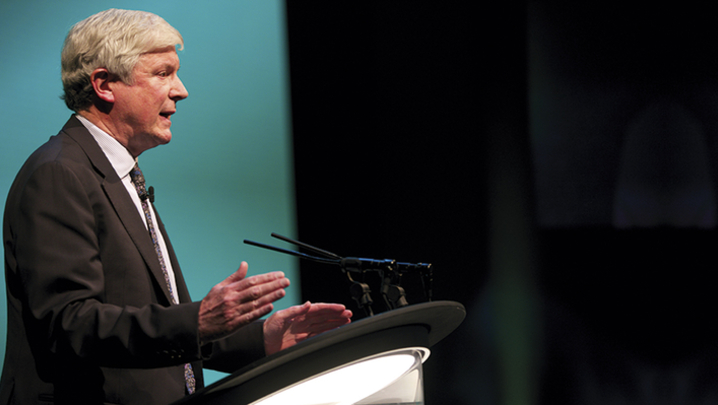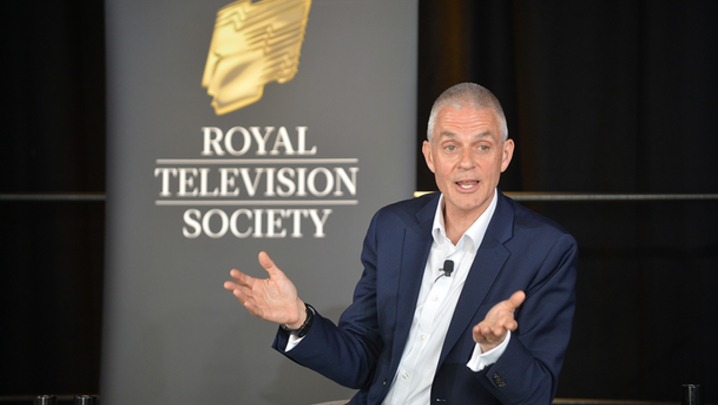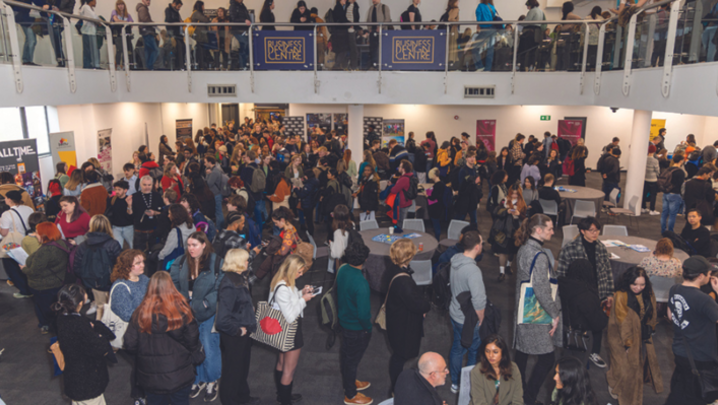Apprenticeships in television and radio are expanding. Pippa Shawley hears why on-the-job training makes sense
When Tony Hall was appointed BBC Director-General, he pledged to widen the corporation’s recruitment net by ensuring that 1% of its public-service workforce were apprentices by 2016.
He reached the target two years ahead of schedule. By the end of 2014, 177 apprentices were employed across the UK in departments ranging from local radio to business management.
BBC apprenticeships last between 12 months and three years. Participants on the production scheme undertake placements on programmes in addition to training with the BBC Academy.
Those on the three-year engineering scheme work towards a degree in broadcast engineering, taught jointly by the University of Salford and Birmingham City University, while gaining industrial experience.
“Apprenticeships are a great way for us to connect with young people who might never have considered applying for a job at the BBC,” says Claire Paul, the BBC Academy’s Head of New Talent.
At Sky, training for creative and digital media and for customer service lasts one year. The broadcaster has schemes in other areas, including journalism, operations and finance, which last two years.
All placements at ITV and Channel 4 last one year. Channel 4 changes its slate of apprenticeships each year in response to demand. Candidates know from the outset, however, that they will not necessarily be offered a permanent job at the end of their course.
In contrast, Sky apprentices start on a permanent contract “so that they’re guaranteed employment right from day one,” explains Martha Jennings, Sky’s Starting Out Manager.
With the Creative Media Workforce Survey 2014 revealing that 72% of those working in TV are educated to degree level, apprenticeships are seen as a good way to discover young talent from beyond the graduate pool.
While it’s still early days for the BBC apprenticeships, according to Paul, all of last year’s production apprentices successfully competed with graduates to secure jobs in the industry.
As I didn’t know anyone in this field, and had no real training in the media, I never even got an interview
In the past, TV apprenticeships have suffered from a notion that they do not carry the same clout as degrees. However, with broadcasters offering an increasingly wide range of apprenticeships – many of them leading to degree-level qualifications – the tide is turning.
Laura Boswell, 4Talent Industry Talent Specialist at Channel 4, has found that apprenticeships attract young people who are very career-driven: “They want to be creative and practical, and have a tangible purpose to be working towards, so they feel that the education setting doesn’t fit their skill set.”
Apprenticeships represent a practical choice for school leavers, believes Paul. She points to other countries to illustrate the potential of apprenticeship schemes: “In Germany, an apprenticeship is not something you do because you can’t afford higher education or because you aren’t smart enough for university. It’s agenuine choice about what’s best for the individual.”
Last year, the BBC received around 4,500 applications for 46 places on its Local Apprenticeship Scheme.
In response to this demand, both the BBC and ITV plan to expand the number of places available.
Business, administration and technology are the dominant areas employing apprentices in broadcasting, though production is making a growing contribution.
With 48% of the creative workforce having undertaken unpaid work at some point in their career, this opportunity to gain experience while being paid is something that today’s school leavers are not taking for granted.
“There is absolutely no way that I would have been able to work in the broadcasting industry without this apprenticeship,” says Robby West, a local apprentice with BBC Radio Essex.
After leaving school, West trained as an electrician, working in building maintenance, but it wasn’t a good fit.
When he saw an advert for the BBC Local Apprenticeship Scheme on Twitter, he says, “I knew that second that I had to apply”.
Local apprentices such as West are based at one of 45 local radio stations across the UK and the Channel Islands. They work for 15 months towards an NCTJ-accredited Level 3 Diploma in Journalism, and receive their training from the BBC Academy and City of Wolverhampton College.
Before embarking on the apprenticeship, West struggled to gain work experience in the industry, despite spending his spare time blogging about local politics in Essex.
“For years leading up to this scheme, I applied for various work experience roles in the BBC, ITV and Channel 4,” he recalls. “As I didn’t know anyone in this field, and had no real training in the media, I never even got an interview.”
West has been offered a contract with BBC Essex as a broadcast journalist once he completes his apprenticeship.
This chance to earn while learning is a draw for candidates concerned that going to university is too expensive.
Although the National Minimum Wage for apprentices will rise by 57p to £3.30 per hour in October, broadcasting apprenticeship salaries vary tremendously. ITV apprentices on a 12-month contract are paid £8,000, which rises to £10,000 for those working in London; Channel 4 apprentices earn twice as much, receiving £16,000.
The BBC’s engineering apprentices get a training allowance of £11,500 per year while studying for a BEng, with their tuition fees picked up by their employer. “It’s definitely nice not to be living on a student budget like some of my friends are,” says Carys Blackburn.
She applied for a degree in media culture and production, but then chose to embark on a technology apprenticeship in broadcast services at Sky. This allowed her to gain work experience while earning.
As Sky’s Jennings highlights, investing in apprentices means investing in the future talent of the business. “In order for a young person to join our business and hit the ground running, they need to have confidence in their ability to face the challenges of a bustling work environment,” she says.
The benefits of this are twofold, she continues: “[The apprentices] are learning how we do things here at Sky, and are able to bring a fresh pair of eyes to our work. We know that a diverse and broad workforce helps to ensure the best service for our customers.”
Paul takes a stronger view, arguing that apprentices are vital to the future of broadcasting: “Our industry lives and dies by its creativity and cutting-edge innovation, so it’s hard to envisage a time when we won’t need a constant supply of great new talent.”
Fifteen per cent of the television workforce attended private school, compared with 7% of the overall UK population, and the sector has long been criticised for its domination by Oxbridge graduates.
Apprenticeships have gone some way to redressing the balance, not least because most employers offering them insist that candidates must not hold a qualification higher than A levels or the equivalent.
Thanks largely to a collaboration with the Stephen Lawrence Trust, 47% of the BBC’s current production apprentices are from black, Asian or minority ethnic backgrounds. Many of those on other schemes come from homes where their parents did not go to university.
“This is a huge cultural shift for an industry dominated by Russell Group alumni,” says Paul. Her team is increasingly supported by Jobcentres around the UK. These help the BBC to talent spot high-potential candidates whom it would otherwise miss.
Speaking to both recruiters and employees, it’s clear that apprenticeship schemes are popular across the board. Despite the minor problems that are inevitable when hiring people who haven’t worked before, or who are used to working only with colleagues from a similar background, the overwhelming impression is of great excitement.
“I think some people don’t realise how easy it is to take on apprentices,” reckons Channel 4’s Boswell, “and that there’s funding in place to pay for the academic side.”
Paul agrees that more companies should consider hiring apprentices. She suggests that, without apprenticeships, “it is unlikely that this exciting talent would ever have considered a job in the media”.






